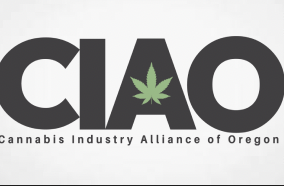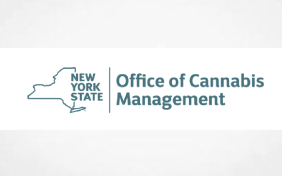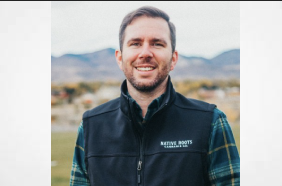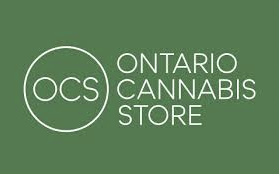The Oregon legislative Task Force on Cannabis-Derived Intoxicants and Illegal Cannabis Production is exploring potential reforms to the state’s regulation of cannabinoid products and legislation for 2023 to combat what law enforcement believes is an increase in illicit marijuana production.
If adopted, these proposals would dramatically reshape Oregon’s hemp industry and implicate the entire national market, and create new classes of crimes and increased penal sanctions for illegal marijuana production in Oregon that may mark a larger national reversion to war-on-drugs policies and mentalities.
The task force was created in 2021 by Oregon H.B. 3000, which passed with the intent of regulating novel cannabinoids such as delta-8 THC and addressing a theory that bad actors were obtaining hemp licenses as a cover for illegal marijuana production.
Members of the task force include state legislators; representatives of the Oregon Liquor and Cannabis Commission and Oregon Department of Agriculture; state and local law enforcement personnel; and advocates representing Oregon’s hemp and marijuana industries.
The scope of the task force expanded this year with the passage of Oregon’s hemp moratorium legislation, S.B. 1564, which added five more members to the task force that include representatives from the Oregon Bureau of Labor and Industries and Water Resources Department to address issues of labor trafficking and water theft at illicit grows.
Before diving into the task force’s regulatory proposals regarding cannabinoids, it is important to frame the discussion by explaining that the key distinction between marijuana and hemp is simply that the latter is defined as cannabis plants and products with a delta-9 THC concentration of less than 0.3%.
The 2018 Farm Bill legalized hemp and opened the door for interstate trade of the commodity, while marijuana — i.e., cannabis that has above 0.3% delta-9 THC — remains federally illegal, and trade is relegated within independent, intrastate markets.
By distinguishing hemp and marijuana solely by delta-9 THC concentration, the 2018 Farm Bill led to two major, and likely unintended, consequences.
First, focusing only on delta-9 THC allowed for the interstate trade of artificially derived cannabinoids, most notably delta-8 THC.
The U.S. Court of Appeals for the Ninth Circuit’s May decision in AK Futures LLC v. Boyd St. Distro LLC affirmed the legality of these products.[1]
A lack of federal regulation allowed for largely unregulated sales of intoxicating, artificially derived cannabinoids online and even to minors.
In response, Oregon’s marijuana regulatory agency, the OLCC, promulgated administrative rules to ban the sale of most artificially-derived cannabinoids in Oregon. [2]
The second immediate implication is that cannabinoid products classified as hemp can contain enough delta-9 THC to be intoxicating.
Many state policymakers fail to understand this dynamic, which recently resulted in the Minnesota Legislature accidentally legalizing edibles containing up to 50 milligrams of delta-9 THC per package, as some state legislators failed to understand that legalizing hemp-derived cannabinoids included delta-9 THC that falls at or below the 0.3% concentration threshold.
Hemp products containing high amounts of total delta-9 THC and other intoxicating cannabinoids are a central concern of the Oregon task force, which is considering: (1) new packaging and licensing regulations, (2) tracking requirements, (3) solutions to curtail sales of intoxicating cannabinoid products to minors, and (4) regulations for the import and export of hemp.
Labeling requirements under consideration would require disclosure of total THC content by volume for hemp products, rather than simply listing the product as containing less than 0.3% delta-9 THC. Providing this information would ensure that Oregon consumers understand that consuming an entire hemp product can give them the same high as marijuana.
Current OLCC regulations allow hemp edibles to contain up to 20 milligrams of delta-9 THC per container.[3]
Regarding licensure, ODA regulations on hemp currently only require licenses for production and handling, i.e., processing. A proposal currently before the task force would treat hemp products more like marijuana by requiring licenses for secondary processing and wholesale, as well as requiring retail licenses for in-state sellers and out-of-state companies selling directly to Oregon consumers.
A possible ulterior motive for new retail licensing requirements may be an attempt to fix a potential regulatory loophole in Oregon’s ban on artificially derived cannabinoids.
The OLCC only has statutory authority to levy fines against businesses that do not hold a marijuana license in situations where those businesses are selling marijuana items.
Artificially derived cannabinoids, being derived from hemp, fall outside of the definition of marijuana items. Some Oregon gas stations and convenience stores are still carrying delta-8 products, and are likely relying on this regulatory gray area to do so. Requiring licenses for the sale of hemp items would foreclose this gap in regulatory enforcement.
Oregon H.B. 3000 tasked the OLCC with rulemaking authority to develop tracking requirements for hemp products, and the task force is leaning toward recommending that hemp be tracked just like marijuana, through seed-to-sale tracking software administered by a private company called Metrc LLC.
In a recent meeting, OLCC Executive Director Steve Marks discussed a possible overhaul of Metrc tracking requirements for marijuana, and the agency may move to a different company once the state’s current contract with Metrc ends in August 2025.
Whatever reforms are made for marijuana will likely become the regulations also applicable to hemp items to ensure uniformity across markets.
Oregon statute currently forbids the sale of adult-use cannabis items to minors,[4] and the task force is pushing to give the OLCC authority to create a minor decoy program to test whether retailers are complying with the statute.
Another potential undercover agency tool retailers should remain apprised of is a proposed secret shopper program, in which Oregon administrative agency personnel would enter retail stores and purchase products off store shelves for retesting. This retesting would ensure that products are correctly labeled and that labs are properly testing the products they receive.
The final major consideration related to hemp is new administrative requirements for interstate trade. The task force is discussing requirements that hemp items entering Oregon undergo additional testing or processing upon import, and shipments leaving Oregon may need to include handoff documents to provide receiving states with information regarding the content and testing standards applicable to the product.
These activities would also require special import and export licenses, as well as potential tracking requirements.
Beyond the pertinent business implications, lawyers working in this industry should remain apprised of potential preemption issues, as the 2018 Farm Bill disallows states from prohibiting the interstate commercial trade of hemp.[5]
Undue burdens on interstate commerce could likewise generate dormant commerce clause issues if Oregon fails to demonstrate that there is a substantial local need for their new regulations and that no other less restrictive means can accomplish their regulatory goals.
An interesting note regarding interstate trade of hemp is that while the OLCC banned the sale and import of artificially derived cannabinoids in Oregon, an agency bulletin provides that Oregon hemp licensees remain free to produce artificially derived cannabinoids and export them for sale out of state.[6]
The juxtaposition of banning artificially derived cannabinoids in-state while allowing export has mystified industry advocates. Task force member and state Rep. Lily Morgan appeared equally flummoxed in a recent task force meeting upon learning of this dynamic.
The OLCC argued that H.B. 3000 granted it such rulemaking authority, to which representative Morgan, a chief sponsor of the legislation, stated her belief that the legislative intent of the bill was to create regulations, and not institute a prohibition.
This questioning of legislative intent may push industry advocates to introduce legislation in 2023 that would allow for the sale of some artificially derived cannabinoids in-state, particularly CBN — which, notwithstanding its popularity as a nighttime gummy and potential alternative to prescription sleeping aids, is currently scheduled for a ban beginning next year per an OLCC rule.
Turning now to potential law enforcement reforms, it is important for readers to understand how Oregon’s hemp industry became a central target of efforts to combat illegal marijuana production.
Following implementation of Oregon’s hemp program, a narrative quickly emerged that illicit marijuana producers were obtaining hemp licenses as a cover for illegal activity.
The Legislature responded by giving the OLCC rulemaking authority under H.B. 3000 to promulgate presumptive testing rules that would create a methodology for testing hemp crops in the field and determining whether the crops were presumptively marijuana, and thus subject to detainment.
With these rules in hand, the OLCC and ODA worked with law enforcement to execute Operation Table Rock in the summer of 2021 and tested almost all licensed hemp growers in southern Oregon.
The major headline coming from Operation Table Rock was that around 58% of crops tested above the 0.3% delta-9 THC threshold. The reliability of these results is questionable however, due to issues with the LightLab portable testing machines used in the operation, as well as procedural missteps by field agents and leading OLCC agency staff.[7]
Nevertheless, the task force is strongly supporting a statutory extension of the presumptive testing rules that are set to expire on Jan. 1, 2024, which would allow for similar enforcement operations in the future.
ODA representative Sunny Summers stated in a task force meeting that a new presumptive testing operation is currently underway, so Oregon hemp producers should prepare for an inspection visit very soon.
Beyond regulating the hemp industry, the law enforcement subcommittee of the task force is strongly in support of expanding Oregon’s Illegal Marijuana Market Enforcement grant program.
The program was established in 2019 with an initial ongoing allocation of $3 million per grant cycle, which was increased to $6 million via passage of H.B. 3000.
A one-time infusion of an additional $20 million was allocated by the Legislature in December 2021,[8] and an additional $6 million was allocated during the 2022 legislative session specifically for community-based organizations to address human rights issues arising from labor and human trafficking at illicit grows.
Despite $20 million being allocated for law enforcement this past grant cycle, a status update provided by Oregon Criminal Justice Commission Executive Director Ken Sanchagrin revealed that applications from law enforcement asked for more than $32 million. Sanchagrin attributed the over-ask, and subsequent delay in rolling out grant dollars until July 2022, to the one-time nature of the increased funding.
This resulted in a resounding call to increase ongoing funding for the law enforcement portion of the grant program to maintain the level of funding available for the 2022 grant cycle.
A proposed source for ongoing funding is Oregon’s cannabis tax revenue. Tapping into the cannabis tax account would create a major legislative showdown as Oregon Measure 110, passed by voters into 2020, allocates all growing cannabis tax revenue into drug treatment programs, and for the past two legislative sessions advocates for community investment into minority communities impacted most by the war on drugs have also sought preallocation tax dollars from the marijuana tax account.
On the criminal procedure front, there is a proposal to amend Oregon Revised Statutes 133.575(1) by removing the “with all practicable safety” requirement for when police can invite those who are not law enforcement personnel in executing a search warrant.
Deleting this language would make it easier for the ODA and OLCC agents to accompany law enforcement in searching illicit marijuana grows and allow law enforcement to employ the OLCC LightLab testing machines during investigations.
Given the inaccuracies of testing results produced by Lightlab machines in Operation Table Rock, we may see many hemp growers wrongly arrested or convicted for illegal marijuana production.
The law enforcement subcommittee of the task force is also pushing for a statutory change that would restore law enforcement’s ability to use car trackers, body wires and phone pings in investigating suspected illicit marijuana activity. These tools were blocked for marijuana investigations in 2017 when Oregon S.B. 302 removed marijuana from Oregon’s Uniform Controlled Substances Act.
Increasing criminal sanctions is another consideration that is a high priority for the law enforcement subcommittee of the task force. This includes creating a list of aggravating factors for crimes related to illicit marijuana production and water rights theft.
There is also discussion of creating new criminal liability for landowners renting property to illegal growers. This new crime would essentially be an aiding and abetting offense limited to situations where landowners “should have known” their tenants were illegal operators.
While the knowledge requirement may protect some innocent landowners from conviction, it may not protect them from being wrongly arrested and incurring possibly tens of thousands of dollars in attorney costs and legal fees.
Hemp industry advocate Courtney Moran argued before the law enforcement subcommittee that levying civil fines against illicit operators may prove a better deterrent than increasing penal sanctions, but this proposal was quickly shut down by law enforcement personnel sitting on the subcommittee.
A troublesome aspect of the discussions coming from law enforcement is their freewheeling use of the term “ethnic-based drug trafficking organizations” to describe who they believe are the main culprits of illegal marijuana production, without providing any evidence that most illicit producers are nonwhite.
Maligning minority communities as responsible for illegal drug activity was used in the 1930s to make marijuana illegal, and was a rallying cry during the war on drugs that resulted in a dramatic rise in incarceration rates that disproportionately affected minority communities.
History may be repeating itself in Oregon, and increases in law enforcement resources may prove futile in addressing illegal marijuana production as the lack of interstate trade and continued federal prohibition creates the national underground market that Oregon producers have sold to for generations.
Oregon’s recently enacted moratorium on new marijuana licenses forces these legacy growers to remain underground. Increased law enforcement funding and resources would thereby probably do little to address illicit production, and only result in increasing disparate arrest and incarceration rates for minority communities, and the deterioration of civil liberties for all Oregonians.
[1] AK Futures LLC v. Boyd Street Distro, LLC, 35 F.4th 682 (May 19, 2022).
[2] Oregon Administrative Rule (“OAR”) 845-025-1310.
[3] OAR 845-026-0400, Table 3.
[4] ORS 475C.213.
[5] See 2018 Farm Bill, Pub. L. 115-314, § 10114, 132 Stat. 4914 (2018).
[6] OLCC Recreational Marijuana Program, Compliance Education Bulletin CE2021-04, December 28, 2021, https://www.oregon.gov/olcc/ma….
[7] Kevin Jacoby, Operation Table Rock Part I, Green Light Law Group Blog, September 30, 2021, https://greenlightlawgroup.com…; Kevin Jacoby, Operation Table Rock Part II, Green Light Law Group Blog, November 18, 2021, https://greenlightlawgroup.com….
[8] Senate Bill 5561 (2021).
https://greenlightlawgroup.com/blog/oregon-cannabis-proposals-could-dramatically-reshape-industry


















